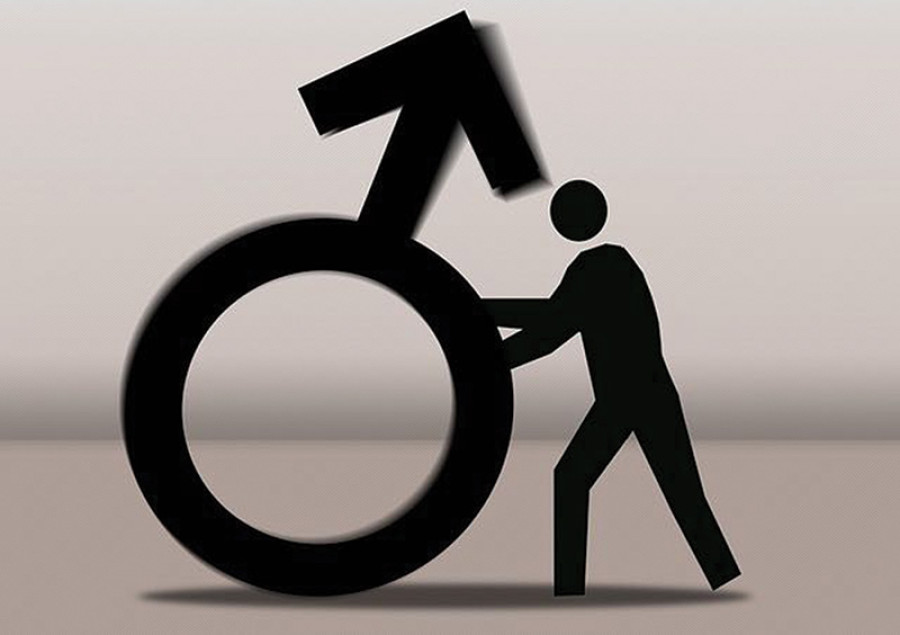Opinion
Breeders of machismo culture
Violence based on gender has much to do with societal power structures
Bhawana Upadhyay
The rape and murder case of Nirmala Pant has shocked the entire nation. As news unfolded that local authorities had tampered with evidence crucial to the case, the public, media and women activists took to the streets demanding proper investigation and justice. Social media was inundated with overwhelming, agonised reactions. In the wake of such acts of negligence by government officers, the public demanded the resignations of the heads of the home ministry and the government.
On the issue, in one of her recent interviews, the National Human Right Commission (NHRC) spokesperson, Mohana Ansari, remarked that a lack of seriousness on the officers’ part, in collecting and preserving evidence, has led to the delay in finding the perpetuator(s) in Nirmala’s case. This is not the first time that the NHRC has flagged up concerns regarding the State’s lack of interest in taking serious action in cases related to violence against women (VAW). NHRC has been highlighting concern that rampant impunity of criminals is contributing to an increase in the number of VAW cases.
The government’s lack of seriousness in handling VAW cases is one of the primary causes of Nepal having such a high number of VAW incidences, which is sadly increasing by the day.
Trigger points
According to Nepal Peace Monitoring Project data, 680 gender violence incidents across Nepal were documented last year alone. Authorities of the project remarked that the actual numbers are much higher than reported, as many such cases are settled between the victim and perpetrators’ family members. Of the total number of documented cases, more than 25 percent of the primary perpetrators are either relatives or immediate family members of the victims.
Experts claim that violence based on gender or sexuality has much to do with power structures that reinforce principles of masculinity or femininity. Domestic violence is generally perpetrated by men who are often family members that occupying respected positions and power in familial structures, such as fathers, uncles, etc.
Psychiatrists, on the other hand, bring interesting views to the table on this issue. They argue that the negative pattern of thoughts and fantasy bond are the two emotional elements that trigger violence against women. Often times, male abusers entertain egoistic and destructive thoughts in their minds like: “I am capable of handling that lady and know how to tame her. If I am a macho man, I should show my masculine characteristics. I can be forceful, violent and audacious.” Such thoughts come so often that it almost becomes their inner voice and provokes them to abuse their partners or someone whom they want to prove that they are powerful.
Feminist scholars have associated machismo with negative characteristics such as misogyny, sexism and masculinity. Macho men are usually characterised as violent and controlling, and this type of attitude and behaviour is common in patriarchal cultures.
Fantasy bond, on the other hand, provides a sense that someone else is responsible for one’s happiness. In this case, denial of anything that is being demanded will spark off actions of revenge in perpetrators. As a result, perpetrators end up doing heinous acts, such as, throwing acid, raping women, and many other forms of violence. This type of belief system gets breeding ground when perpetrators are protected either by the political system or by society at large.
Breaking the vicious cycle
Nepal has a good bunch of regional and international not-for profit organisations affiliated to the Social Welfare Council so far. Many of these organisations proclaim that they deal with gender-based violence, with primary focus on women and girls. However, often times, these organisations, instead of fighting for the victim’s right to justice, highlight the victim’s problems, and state that the victim faced the consequences of ignoring a perpetuator’s crimes.
At home, children in our society grow up seeing their mothers get beaten up by fathers, who are them justified and socially accepted. Our patriarchal culture is one that accepts such behaviour that subjugates women, at times even encourages it. And such behaviour starts from home. Recent data say that more than 25 percent of abusers are family members. Educating our families and society regarding such issues plays a key role in curbing VAW.
In order to break this vicious belief system, the government as well as society has to put serious efforts at multiple levels. Only the formulation of gender-friendly policies and laws will not be effective, they need to be enforced on time and complemented with instilling family values, dignity and integrity in growing boys and girls. I believe legislation in itself is not sufficient to tackle this problem when the problem is ingrained in our culture. Our social life begins at home and school with a patriarchal belief system that reinforces unequal power relations between growing boys and girls. We have to address this severe underlying issue before we go on to do anything else.
Upadhyay writes on contemporary social issues




 18.12°C Kathmandu
18.12°C Kathmandu










